Where to drink natural wine in the heart of Mexico
The vineyards, wineries and tasting rooms wine experts recommend around San Miguel de AllendeSAN MIGUEL DE ALLENDE, MEXICO — The undeniable charm of this town is obvious at first glance: multicolored homes stacked neatly into soft mountain ranges, alleyways kissed with bougainvillea vines, daily firework displays and feathered dancers who drum to the heavens outside the pastel-pink chapel at the center of it all.
Less apparent is what is happening in the surrounding soil, a natural wine scene quietly taking root in the heart of the Mexican highlands. Of Mexico's 14 distinct wine regions, the Pacific Coast-hugging Valle de Guadalupe accounts for the vast majority of the country's wine production. Its proximity to California's Napa Valley and prolific winemaking output boosts the section of Baja California to the top of numerous travel guides.
But in the central states of Querétaro and Guanajuato, where San Miguel de Allende is located, charismatic winemakers who observe few rules are making a case that they deserve equal attention from oenophiles.
"Ensenada is Disneyland now, and I don't care who hears me say that," says Marcelo Castro Vera, a pioneer in Mexico's natural wine movement who is based in San Miguel de Allende.

A church is seen from a street in San Miguel de Allende in Mexico. (William Perry/Getty Images)
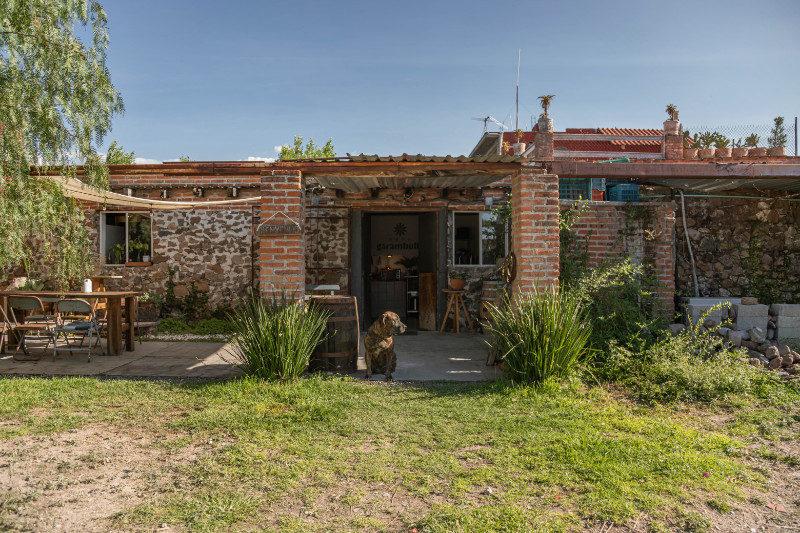
Cava Garambullo winery is in San Miguel de Allende. (Eugenia Tinajero for The Washington Post)
Elías García Viadas, a chef and certified sommelier who recently worked at the Los Arcángeles vineyard in Guanajuato, echoes the sentiment. "In the Mexican wine world, Baja wines are becoming a cliche, similar to mezcals from Oaxaca," he said.
North of the border, a thirst for Mexican wine is growing. Searches in the United States for "Mexican wine" in Google's travel category have topped "Mexican tequila" and "Mexican mezcal" at several points over the past 12 months. From 2015 to 2016, U.S. imports of Mexican table wine grew 48 percent, according to a MarketWatch report.
[Here are five key things to know when you drink natural wine]
Several local wine experts told me they refer to the central Bajío region as Mexico's unofficial "capital" of natural wine, a category without universal definition. Prizing organic or biodynamic farming and spontaneous fermentation, natural winemaking typically features little to no intervention. Traditional filtration and added sulfites — used to correct acidity, color or flavor and halt further changes after bottling — are also generally eschewed.
To fully immerse myself in this dreamland of tart, kombucha-like grip and cloudy sediment, I went directly to vintners, sommeliers and enologists around San Miguel de Allende to find out their favorite places to drink.
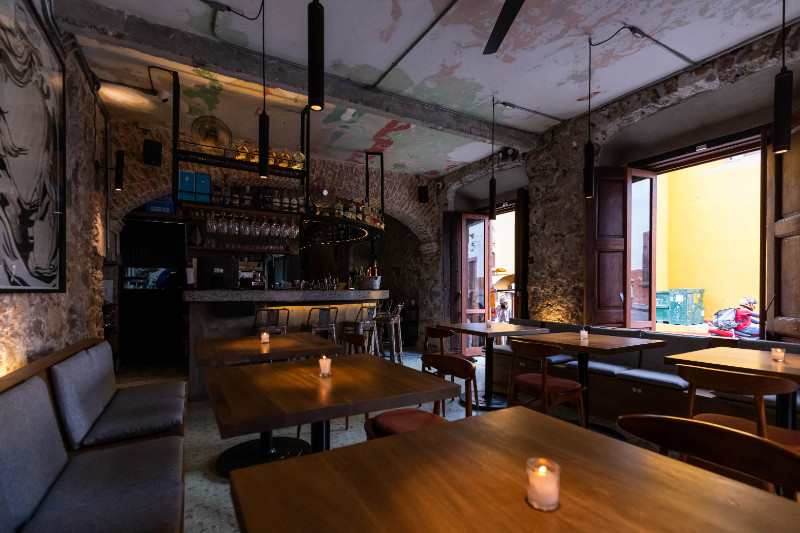
Xoler wine bar can be found in San Miguel de Allende. (Eugenia Tinajero for The Washington Post)
Xoler wine bar
Hidden in plain sight, this cozy, slate-hued wine and tapas bar sits on the corner facing the public library on Relox street (Xoler is Relox spelled backward). Xoler has only been open a few months, and local wine lovers say it's San Miguel de Allende's only bar with a broad selection of natural wines from both Mexican and international vineyards.
Even for amateur drinkers, it's an affordable way to get to know Mexican wines. Most wines by the glass are under $10. On a recent visit, I understood why one local winemaker told me, "Xoler reinvented what a wine bar is for San Miguel."
As I sipped a glass of Vinos Pijoan Collage, a full-bodied cabernet sauvignon-Nebbiolo-Syrah blend, I thought, "the only thing that could make this evening better would be some really good hip-hop." Minutes later, Kendrick Lamar's Pulitzer Prize-winning album, "Damn" burst through the speakers.
On occasion, you'll catch San Miguel's famous mojigangas — burlesque papier mâché puppets up to 18 feet tall — shimmying in and out of the floor-to-ceiling windows.
Reservations are recommended but not required. Xoler is closed Sunday and Monday.
Xoler, Insurgentes 60, Zona Centro, 37700 San Miguel de Allende, Guanajuato, Mexico
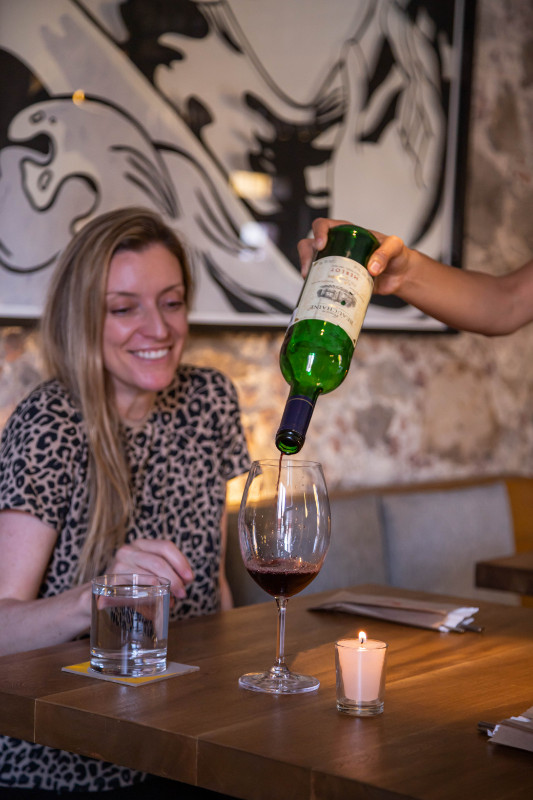
Wine is poured at Xoler wine bar. (Eugenia Tinajero for The Washington Post)
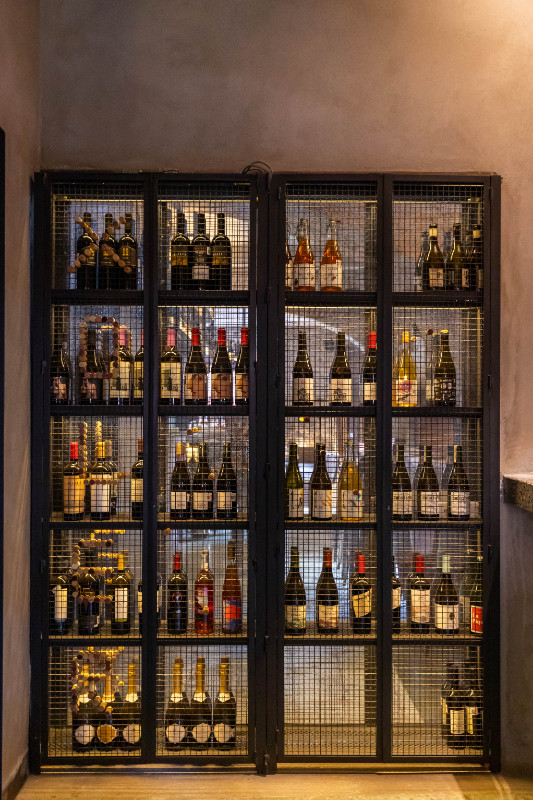
Bottles are seen on display at Xoler wine bar. (Eugenia Tinajero for The Washington Post)
Cava Garambullo winery
Founded nearly a decade ago, Cava Garambullo represents a partnership in wine and life between consultant and self-described "professional taster" Natalia López Mota and Branko Pjanic, a Mexican-Serbian couple who met studying in Europe.
Guanajuato had only three wineries when they started Cava Garambullo in 2012, López Mota says. Today, there are nearly 30. Looking for a place that inspired them, San Miguel de Allende was attractive partly because they could take part in an emerging wine region.
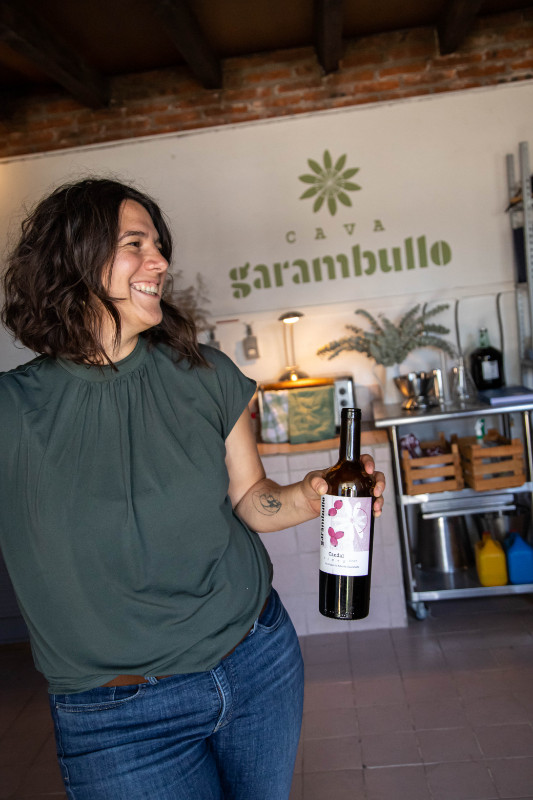
Natalia López Mota is the owner of Cava Garambullo. (Eugenia Tinajero for The Washington Post)
More workshop than sprawling vineyard, Garambullo's squat brick-and-stone wine cellar is rich in light and shadows. Slow sipping is encouraged on the intimate patio, where succulents spill out of their reclaimed wood planters.
It's easy to lose track of time on a vintage Pepsi folding chair whose white paint clings to rust, signaling you not to take the whole natural wine thing too seriously. The indoor tasting room is like an underground sanctuary from the Middle Ages, if medieval dungeons were furnished with work benches, velvet cushions and hand-chalked wooden barrels.
In San Miguel de Allende, López Mota also recommends ICAVI and Cava Sautto. The former is a gathering point for professionals, but tourists can also request a tasting, attend an event, buy wine or take a class, sometimes led by the Garambullo winemakers themselves. The latter is part shop, part bar and classroom, and you can snag a great bottle anytime to sip in the back.
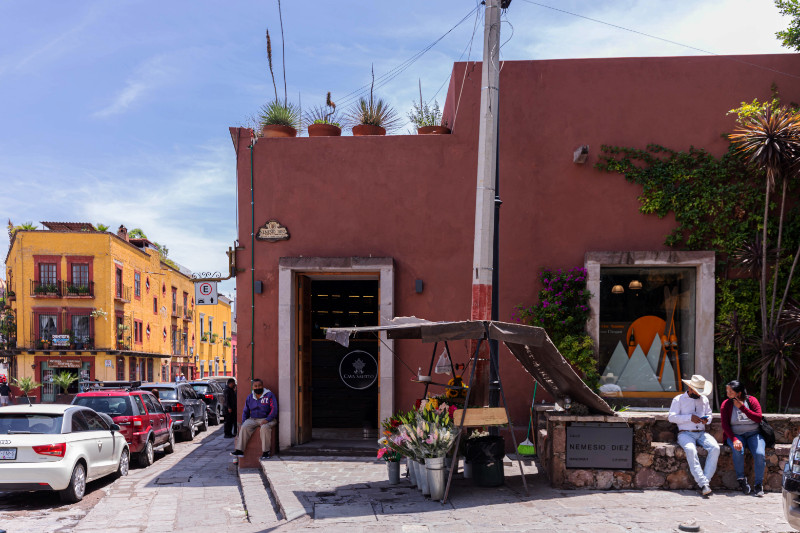
Cava Sautto is a wine shop with a bar and a classroom. (Eugenia Tinajero for The Washington Post)
López Mota advises against renting a car here if you're not used to driving in Mexico. "People drive without a lot of rules. Foreigners won't understand," she cautioned. Instead, first-time travelers should hire a driver for the day or book a wine tour. Fly to Mexico City first, López Mota suggests, and then take a bus to San Miguel de Allende, a four-hour ride $25 to $30 one way.
To secure a spot at Cava Garambullo's monthly open cellars, visit their Instagram, where limited spaces are announced periodically.
Cava Garambullo, Carretera San Miguel de Allende-Dolores Hidalgo Km 3.5, El Vergel de los Laureles, 37897 San Miguel de Allende, Mexico
Los Arcángeles vineyard
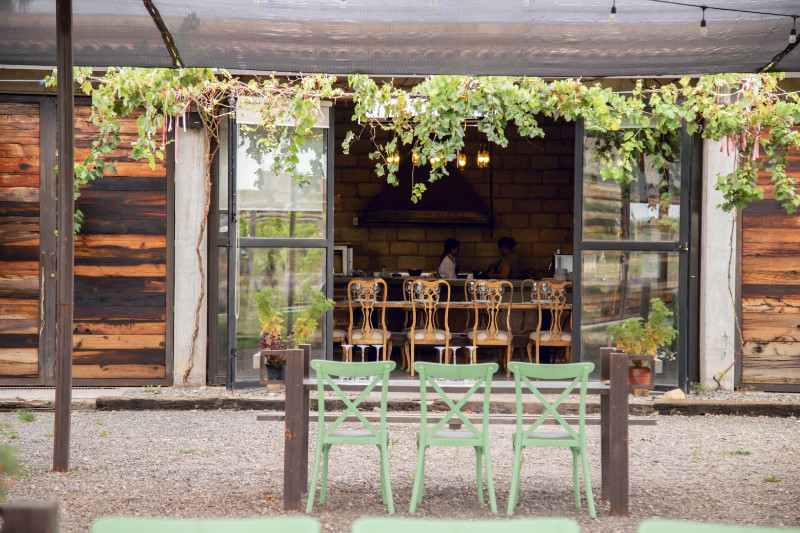
Vinedo Los Arcangeles is located in Dolores Hidalgo. (Eugenia Tinajero for The Washington Post)
Local sommeliers agree that if there's one must-visit vineyard in Guanajuato, it's Viñedos Los Aracángeles. While praising winemaker Ulises Ruíz's prizewinning blends, they described two of its most special features: views of lavender bushes framing tranquil ponds and a purple pizza dough made with grape yeast.
Last year, Ruíz's Canto de Sirenas sauvignon blanc took home the Grand Gold Medal at the national Mexico Selection competition. According to Miriam Nuñez, an independent chef and sommelier from Guadalajara who trains restaurant service teams around Guanajuato, the wine was "very fruity, very much alive."
To enhance your Los Arcángeles visit, plan to stop at some adjacent pueblos mágicos, "magical towns" designated by the Secretary of Tourism. Neighboring Peña de Bernal is home to one of the largest monoliths in the world and a host of other vineyards and wineries, including Finca Sala Vivé by Freixenet, a favorite for sparkling wine enthusiasts. On your way to the vineyards, opt for a guided tour at Cházaro cigar factory for $5.
You can rent a cabaña at Viñedos Los Arcangeles to stay onsite with free breakfast and the scent of lavender wafting about.
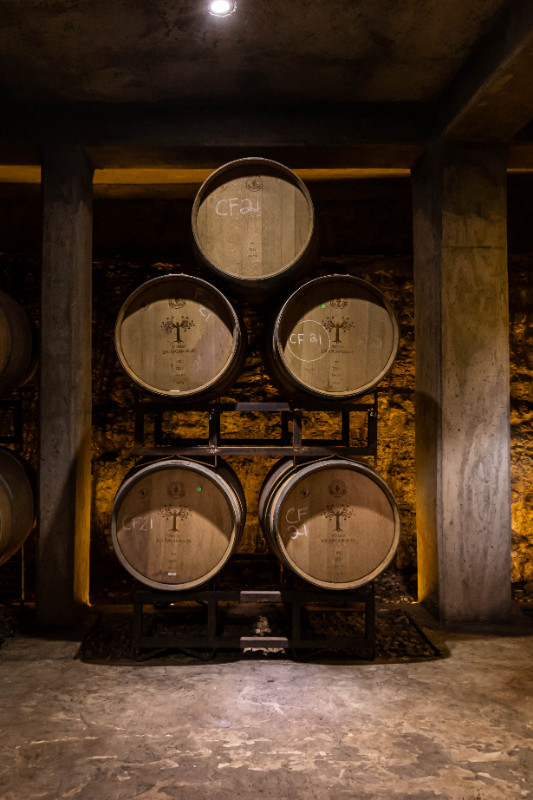
Barrels of wine can be seen at Vinedo Los Arcangeles. (Eugenia Tinajero for The Washington Post)

Wine is poured at Vinedo Los Arcangeles. (Eugenia Tinajero for The Washington Post)
Viñedos Los Arcangeles, Carretera Diego de La Unión Km 13, 37823 Dolores Hidalgo Cuna de la Independencia Nacional, Guanajuato, Mexico
Dos Búhos vineyard
Those searching for a perfect pairing close to San Miguel de Allende can enjoy 75 tranquil hectares at the base of the Los Picachos mountains, where over 50,000 fruit trees used to stand. For over 20 years, the ranch has practiced organic farming just 30 minutes outside of town.
Dos Búhos is home to an event space, a restaurant and a former chapel with rotating art exhibitions. Hour-long tours start at around $25, and offer a broad selection of the vineyard's fertilizer-free varietals. One of San Miguel's first natural wine producers, Dos Búhos offers low-intervention varietals that can please almost any palate, from bubbly white pet-nats to ruby-toned rosés with more minerality than syrupy sweetness.
One recent Sunday, I sat under the shade of a mesquite tree and bit into a rack of spoon-tender ribs that reminded me of the sugary-yet-savory Chinese variety. In the restaurant terrace overlooking rows upon rows of grapes, the server boasted that Dos Búhos was one of the only Mexican wineries utilizing the black Aglianico grape from Southern Italy.
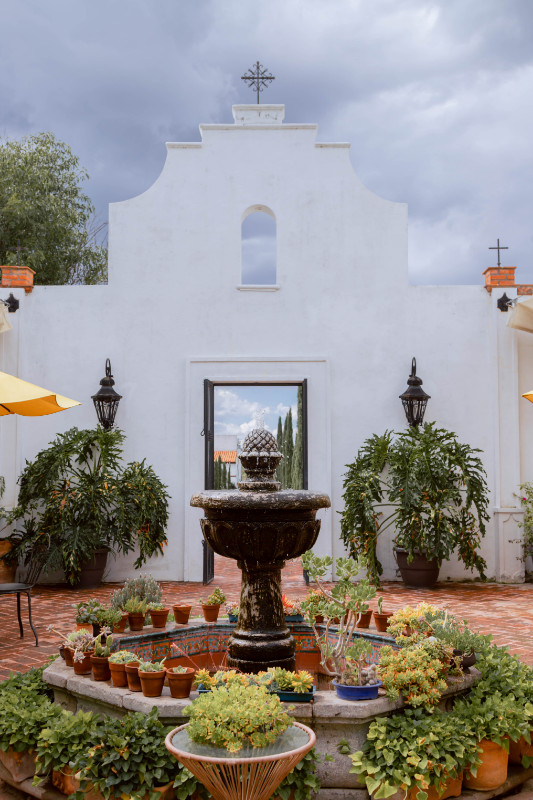
The courtyard is seen at Dos Búhos vineyard. (Eugenia Tinajero for The Washington Post)
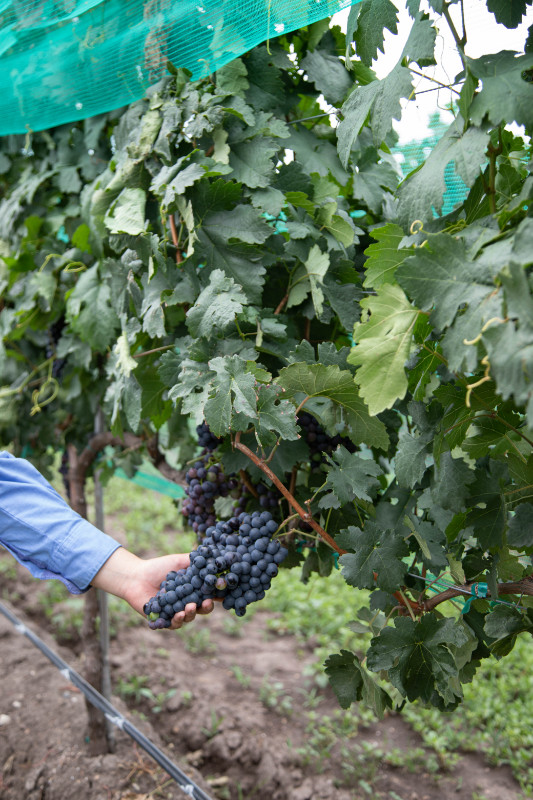
Dos Búhos grows the black grapes from Italy. (Eugenia Tinajero for The Washington Post)
Dos Búhos, Junto a Zirandaro, Carretera San Miguel de Allende-Buenavista, San Felipe Km 2.8, 37880 San Miguel de Allende, Guanajuato, Mexico
El Nidal hotel and winery
This rustic container hotel, winery and distillery is the brainchild of Marcelo Castro Vera, the eccentric, 40-year-old owner. El Nidal is the first contemporary Mexican winery to produce natural wine in clay vessels, in addition to mezcal, beer and other rare spirits, like their artisanal Moisilla distill, which is infused with cannabis leaves from its greenhouse.
Though he admits he had no idea what he was doing when he opened in 2016, Castro Vera knew the Vergel was recognized as a "denominación de origen," a coveted label for wine and mezcal makers akin to the French Appellation d'Origine Contrôlée and Protégée system of wine classification.
Without money for stainless steel, Castro Vera became fascinated with kvevri, clay vessels used in traditional Georgian winemaking. Conveniently, the surrounding San Felipe municipality is known for its pottery.
Chef and sommelier Elías García Viadas says a minimum of two nights at El Nidal is needed to relish in homestyle meals and drink by the fire pit. If you're savvy enough to visit in late summer or early fall, you can see how the wines are produced. There's no WiFi or cellular signal at El Nidal, so print your driving directions in advance and plan to disconnect fully.
Hotel El Nidal, 37624 San Felipe, Guanajuato, Mexico
Tenerías 2 tasting room
When Castro Vera is in San Miguel, you can easily spot his tall silhouette bounding down cobblestone streets in his signature uniform: a T-shirt, cargo shorts, Birkenstocks and a backpack full of bottles from his Octagano wine label.
Octagono has a downtown tasting room, but the eccentric winemaker prefers to keep it nameless. It's known locally by its address in the Centro, Tenerías 2. The pairing menu, depending on the spirit maker's mood, marries Mexican and Middle Eastern snacks with the label's natural wines: white, rosado, orange, red, and fortachón (imagine the musky berries of a port and the medicinal aromatics of a fernet met for a one-night stand). Additionally, expect an introduction to the beer, aguamiel and other unusual spirits produced at El Nidal's distillery.
For $25 to $50 per person, you can hear Castro Vera wax poetic in English and Spanish about what he calls "the four characteristics of natural wine" while surrounded by Uzbek tapestries from his wife's homeland. Reservations are required at the tasting room and you can book an appointment via Airbnb Experiences.
Tenerías 2, Zona Centro, 37700 San Miguel de Allende, Guanajuato, Mexico
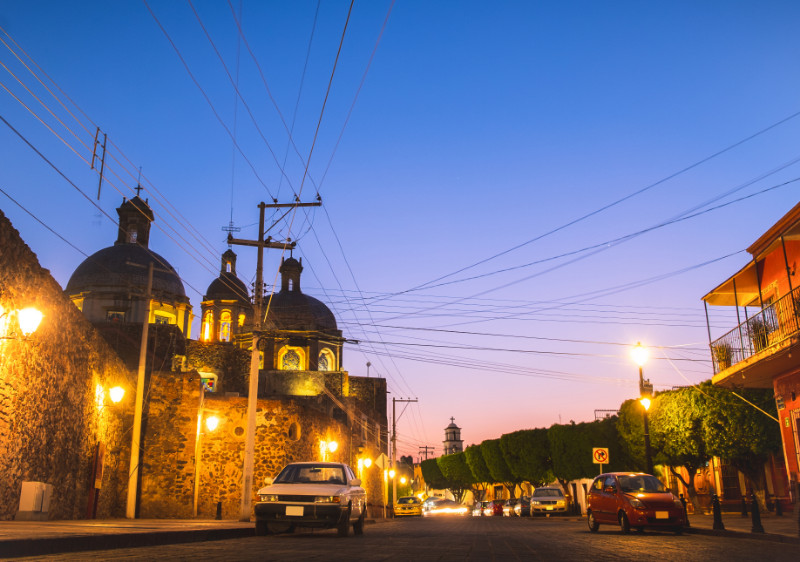
Quéretaro is the home of the Tierra de Peña vineyard, founded by Luis Aburto and his father. (iStock)
Tierra de Peña vineyard
Before he founded the Tierra de Peña vineyard with his father, Luis Aburto recalls that he used to drink only beer and Bacardi. An architect by training, the 39-year-old now helps oversee the family-run property in Valle de Colón in Quéretaro. Contrary to Valle de Guadalupe's robust and powerful offerings, Aburto says the wines of the central states are "more subtle and sparkling."
Aburto cautions first-time visitors that there's quite some distance between the Ruta del Vino vineyards. If you're going to be drinking, he also recommends hiring a driver for the day or weekend. Fly to León or Querétaro airport, he says, then stay in Querétaro if you want the full wine experience, or San Miguel de Allende for its rich history, gastronomy and culture. Call ahead to reserve a tasting at Tierra de Peña to enjoy sheep's cheese from neighboring farms and other personal touches.
Nearby, the local sommeliers recommend seeing another of Querétaro's pueblos magicós, Cadereyta de Montes, to sample the abundant street food. Miriam Nuñez's favorite barbacoa spot here is the tiny El Tope, located in the center of town (Los Vázquez 76500) under a striped cellphone tower. You won't find it on any map.
Tierra de Peña, Carretera Bernal. Km 3, Los Benitos, 76299 Los Benitos, 76299 Santiago de Querétaro, Querétaro, Mexico












